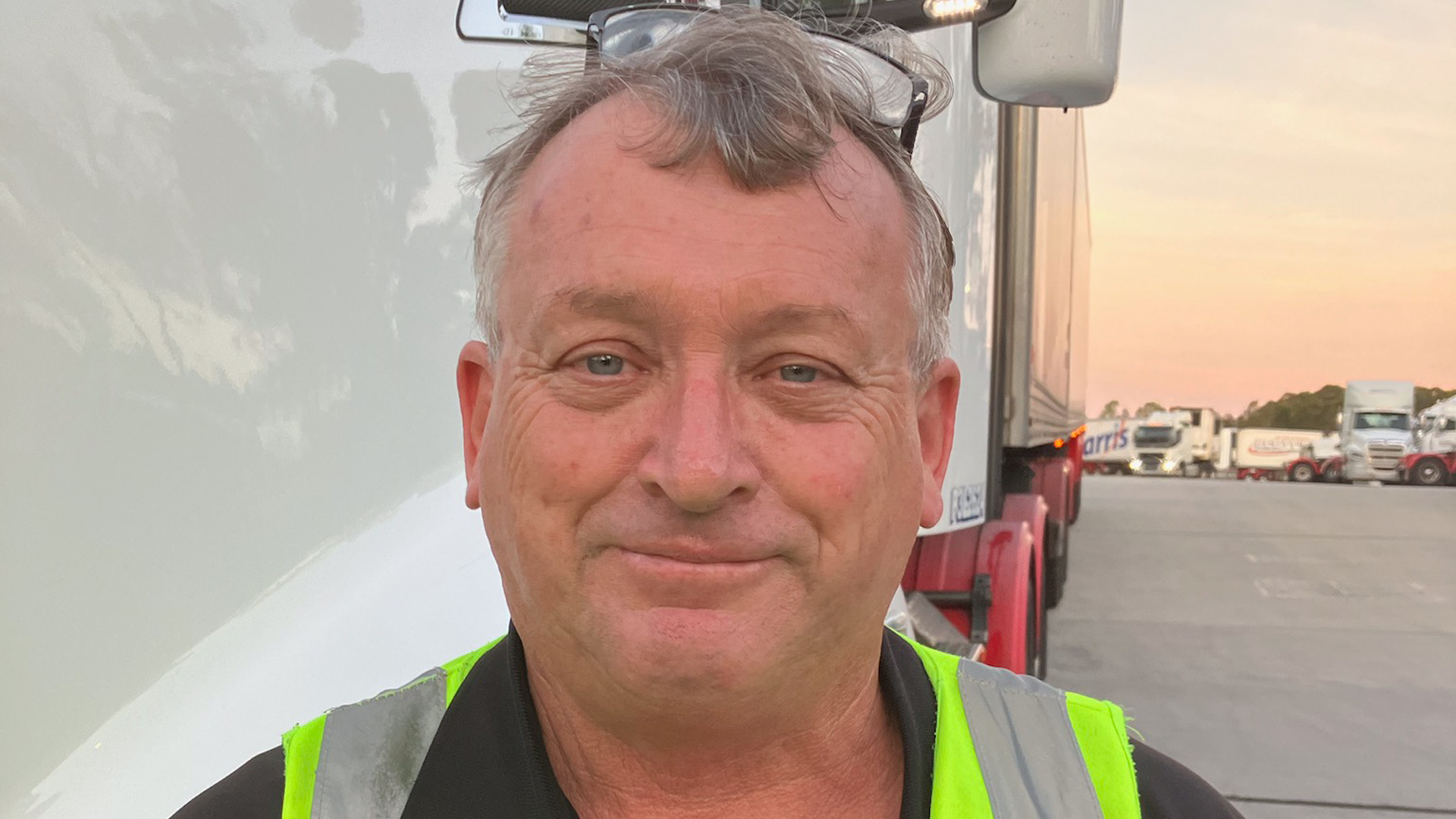
Colin
Colin, 57, has been a linehaul truck driver for 18 years. He started out as a mechanic and then followed in his family’s footsteps to become a truck driver. His typical day involves being at the wheel for up to 11 hours a day, covering 900km, carrying freight. After being involved in an accident at work, Colin knows firsthand just how life changing conversations can be for someone going through a difficult time.
Talking isn’t something that comes easily in our industry – There’s very much a ‘let’s get on with it’ attitude. It’s a very lonely job and it’s very easy to go into your own shell and keep things to yourself. But it’s not healthy, especially given the fact that our job can be quite challenging, and we need people to talk to in order to stay mentally fit to work.
Obviously driving all day isn’t everyone’s cup of tea, yet I think some outside the industry think ‘what could be hard about that’. My shift is from 7pm to 7am, so when most are settling down at home to have their dinner, I’m just getting started. I’m lucky because after my shifts, I get to come home to my own bed and have a great sleep. Kudos to the long-haul truckies who travel further and sleep in their trucks where it’s almost impossible to limit the noise and feel comfortable. I think we can all relate to how a bad night’s sleep can affect us.
We’re on a time schedule when carrying freight, but we need to do it safely. That said, there are times when our safety is at risk. Unexpected delays can extend the trip and have a roll-on effect to drivers by increasing fatigue. Once you become tired, you start to lose focus, so most of us have strategies up our sleeves. Whether that’s grabbing a bite to eat for energy, taking a short break or listening to podcasts that require attention. I also don’t think other drivers on the road realise how much their own driving can impact our safety. For example, pulling out in front of us and assuming it’s easy for a sixty-tonne truck to stop.
I know I’m not alone when I say, people in our industry would have witnessed fatalities or experienced the loss of a colleague. The impact of those accidents is felt far and wide – not just the person directly involved, but family, friends, work mates and the company. The only way through is to talk with and get support from people around you. I know because I was involved in an accident and it was very traumatic.
I initially isolated myself to process what had happened but I was lucky enough to have friends, family and other truckies checking in on me during that time, and that made it a lot easier to open-up when I was ready to. It was also the first time I saw a psychologist – which was daunting. Admitting you need help isn’t always easy, but I followed work’s recommendation and I am so grateful because it really did help me learn how to cope.
People are very hesitant to ask, ‘are you OK?’ because they’re worried it will annoy or anger the person or they feel like it’s not their business to ask or get involved but from my experience it made me realise people cared and I didn’t have to battle my mind alone.
When I returned to work, they were so supportive. They created new avenues for people to talk, for example if someone is involved in an incident at work, I can use my experience to talk to them about what they’re going through or simply let them know they’re not alone. Having a workplace that wraps support around its staff can actually be lifesaving – never underestimate it.
Let’s face it, we’re all human and with that comes the ups and downs of life. We must look out for one another in the best way we can. It doesn’t matter if you’re in the warehouse, office or in the trucks or whether you’re part of big business or a small owner operator, if you’re worried about someone, just ask them how they’re doing. It might take a few times but keep at it and don’t give up. I’m thankful the people in my life didn’t stop asking.
Click here for practical tools and tips on how to drive conversations and ask, ‘are you OK?’




